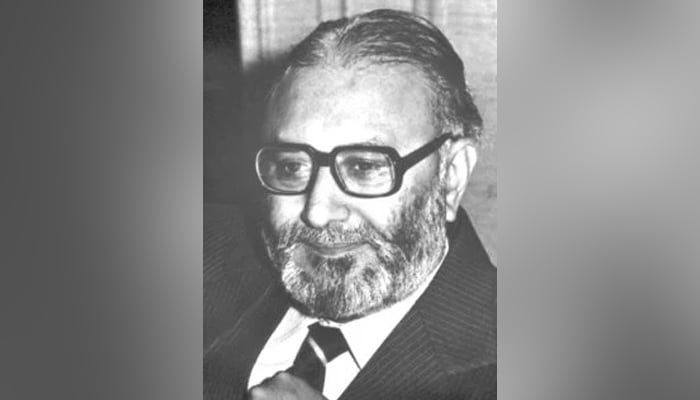Imperial College London honours Dr Abdus Salam
Library's association with Pakistani physicist aims to inspire future generations
Imperial College London has announced to honour the legacy of Pakistani Nobel laureate and physicist Professor Abdus Salam by naming its central library after him.
This decision was made following a report by the History Group, which emphasised the need to acknowledge the contributions of under-celebrated individuals and historical figures associated with the university.
President Hugh Brady of the university expressed his deep admiration for Dr Salam's remarkable contributions both to the field of physics and to the educational institution itself.
The library's association with the Pakistani physicist aims to inspire future generations and pay tribute to his enduring impact.
"Throughout his career, the Nobel Prize winning Professor of Theoretical Physics Abdus Salam made a tremendous contribution to Imperial, as well as to the world of physics and science more generally. It is right that we do more to celebrate this legacy. I hope the new Abdus Salam Library inspires many more people in the years to come," he said.
The report recognises the contribution of academics like Professor Salam through their ongoing work to recognise them, which includes initiatives such as physical commemorations on campuses, portraiture and scholarships.
In 1957, the Pakistani physicist joined the prestigious educational institution and played a pivotal role in setting up the Theoretical Physics Department alongside the late Professor Paul T Matthews. His groundbreaking work on the electroweak unification theory led to him sharing the Nobel Prize in 1979.
Beyond his scientific accomplishments, the Pakistani scientist was a staunch advocate for science education in developing countries. He also founded the International Centre for Theoretical Physics in 1964, which offered scientists from developing countries with opportunities to work with leading field experts.
The library's formal launch and naming ceremony has been planned for the upcoming academic year, where the university community will gather to celebrate his remarkable contributions to science and education.
-
Security forces gun down 30 terrorists in multiple IBOs in KP: ISPR
-
MQM-P calls for new province in Sindh
-
US report validates Pakistan military edge over India: PM
-
Banned TTP poses serious threat to Pakistan security: UNSC panel
-
CM Afridi clarifies remarks on by-poll after ECP requests army deployment
-
Dubai sees 3.2m Pakistani passengers in 2025 as airport sets new milestone
-
Security forces kill 23 Indian proxy terrorists in KP's Kurram
-
Pakistan to construct island to boost oil exploration: report












